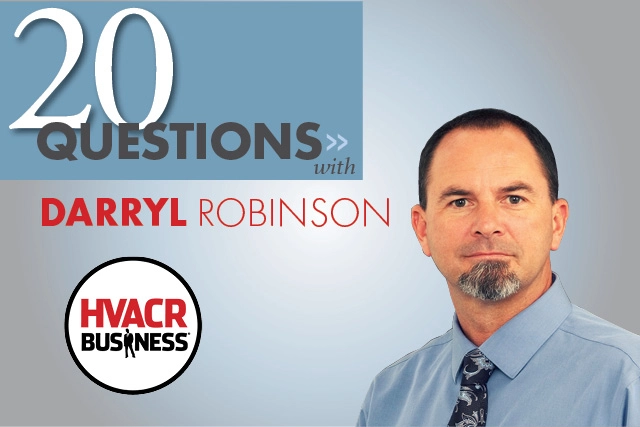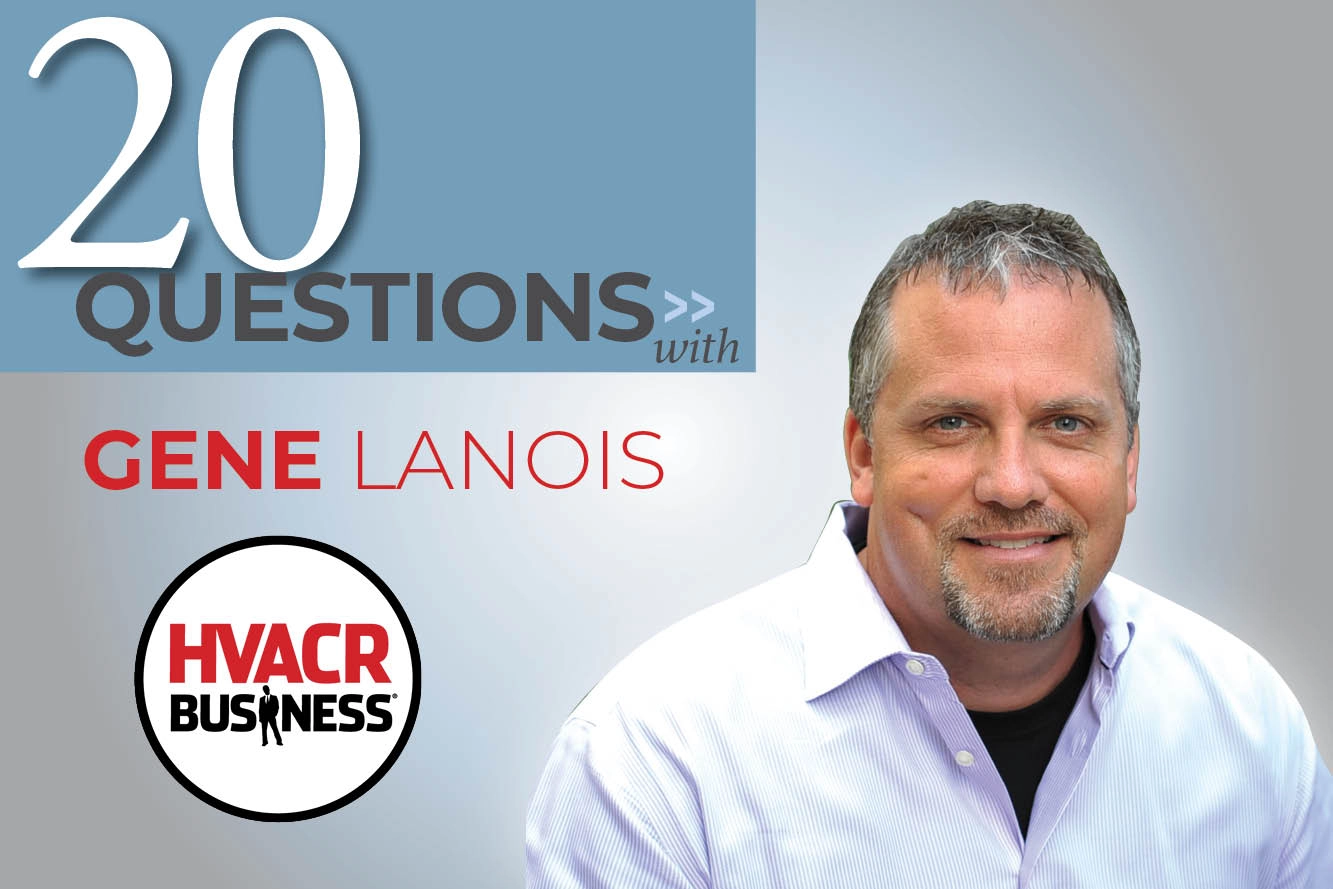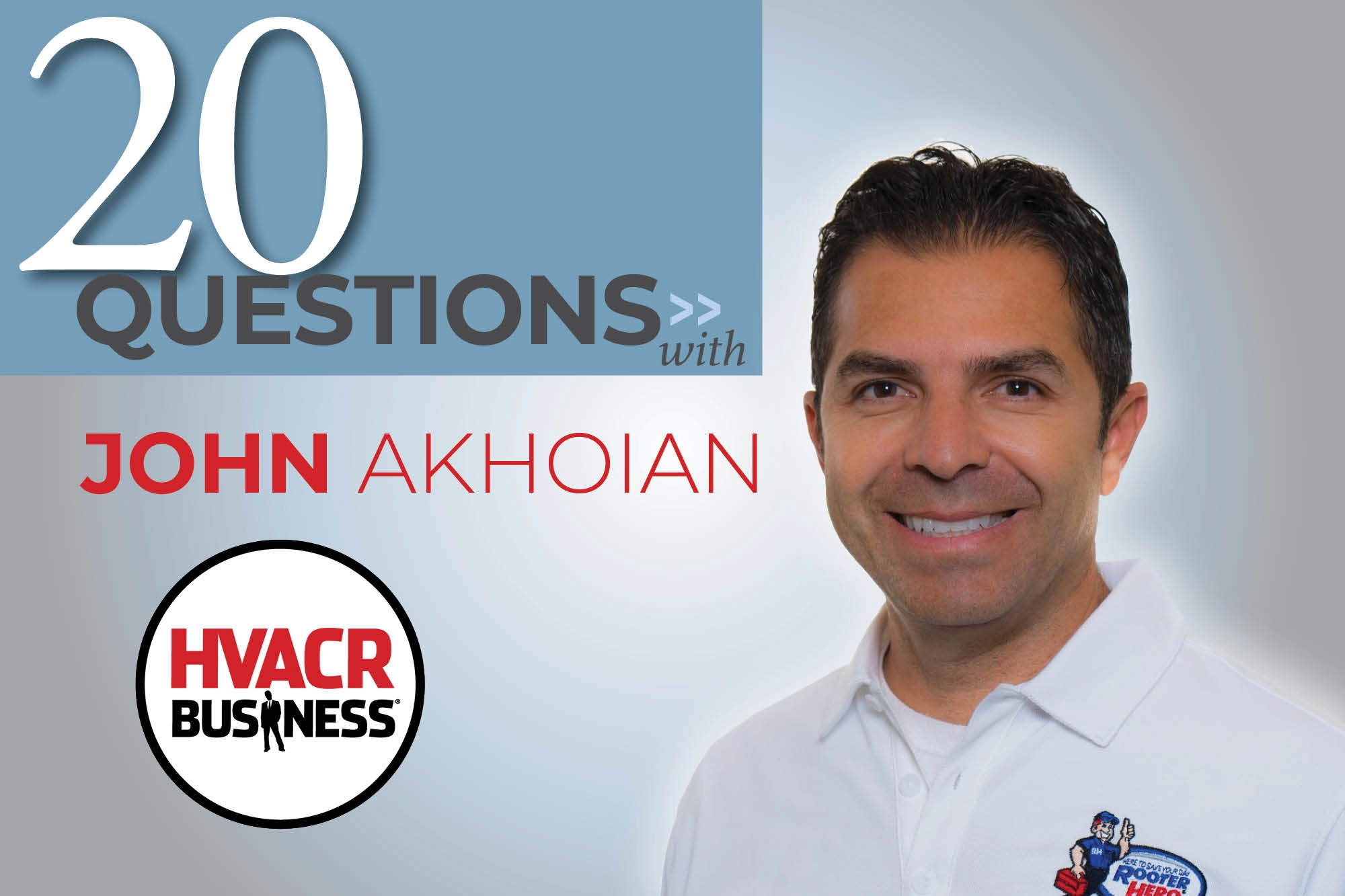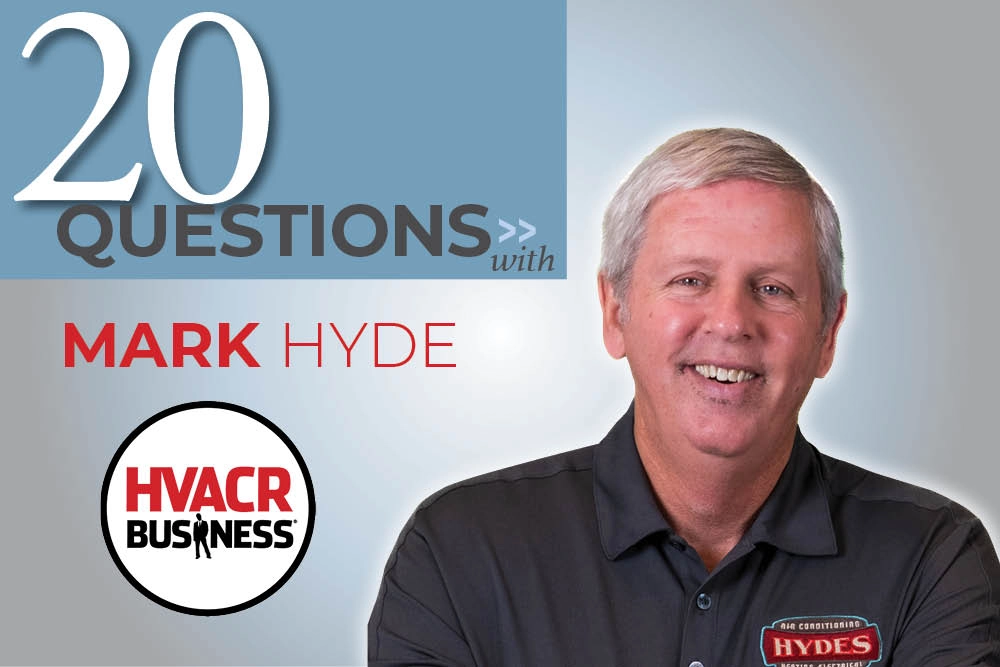We sat down with Darryl Robinson, owner of Robinson Air in Lawton, Okla. Robinson, whose roots go back to when he attended vocational school in high school, discussed learning all aspects of the trade, starting his own company and putting his people and the customer first.
1. How did you get your start in this business?
My junior and senior year in high school, I went to vocational school. After I graduated, I attended Oklahoma State University Institute of Technology in Okmulgee, Okla. and started doing service work at a sheet metal company as the only service technician for its heating and air conditioning side of the business.
2. What did you learn from that company?
At the time, they were predominantly a sheet metal company, and had just started to do heating and air conditioning. I was the only service technician. When it was slow, I worked in the shop and learned the sheet metal trade, eventually joining the sheet metal workers union.
3. Where did you go from there?
In 2003, I needed a change and I moved to Florida for about six years. At first, I worked for a large sheet metal contractor there before moving over to a general contractor where I did estimating. Then, I got a job with a large mechanical contractor as vice president. I ran the office, did estimating and project management there.
4. What experience did you gain from that?
I really learned a lot about how a big company operates. Those six years in Florida were a great learning experience for me. If I had started my company without that experience, I’d probably still be out in the field with a truck and would not have grown into the business that I have today.
5. When did you start your company?
In 2011, after I moved back to Oklahoma, I was working as a foreman for a sheet metal contractor and was doing HVACR service calls on my own in the evenings and on weekends. Eventually, I built up enough of a customer base to make that my full time business.
6. What were those early days like?
My wife, who used to work for a mechanical contractor and has an accounting background, and I started out of the garage and eventually hired an apprentice to help. After a while, we hired another apprentice, then a journeyman and so on until we got large enough to move into a small storefront, then a larger office and eventually into the building we’re in now.
7. How has the business grown since then?
Last year, we did $2.7 million and we’re looking to hit between $3.2 and $3.5 million next year. We average about 20-25 percent growth the last few years, and that’s right where we want to be.
8. How do you ensure you’re not getting too big?
When I start feeling like I don’t have control — that things are getting away from me — then that’s when we start to pull back. I want to make sure that we’re not going so fast or so far that we’re leaving someone behind or we’re maybe not taking care of a customer the way that we should. Once we get to that point, then we pull the reins back and make sure that we’re doing it correctly, that we maintain our integrity.
9. Why did you start your own company?
I really enjoy taking care of customers. That feeling you get when you leave their house and they’re so much better off than when you arrived is what drives me. I realized I could only take care of so many customers in a week. But if I had a company, I could hire someone and train them to do what I do and double the number of customers I can take care of … and so forth. The more people I hire and train, the more good I can do.
10. How do you motivate your team?
It’s not necessarily treating people the way you want to be treated, rather it’s learning how people are and learning what makes them tick, and then treating them the way they want to be treated. You treat people right, you make them happy in what they do.
11. What’s recruitment like?
We used to hire anyone who had a mechanical journeyman’s license, which is required in Oklahoma. But we’ve had so many issues with attitudes and work ethic, so now we’ve switched gears. Instead we hire people with good attitudes and teach them and give them experience to get their license.
12. Is it difficult to hire for attitude rather than experience?
Not really. The last couple of years, I’ve hired kids right out of high school … I work with the same vocational school I attended. We bring them in, we teach them our philosophy, our values, and then obviously we get them more training.
13. So your workforce is quite young?
Yes, but we’re not necessarily hiring just younger guys. We’ve got a military base here, Fort Sill, and once the guys that have been in maybe four years, six years, 10 years, they retire. They train for another vocation, and sometimes we can get those guys. It turns out military guys, a lot of them have the right work ethic, the right attitude.
14. How do you ensure the quality you expect?
My operations manager spends a lot of time out in the field visiting jobs. I’ll go out sometimes too. We listen to what the customers are saying … their feedback and reviews are important.
15. What’s the most important thing you do?
Making my coworkers happy. If everybody enjoys coming to work, then I’ve done my job. Just that one thing, if I do nothing else right. If they’re happy and enjoy coming to work, the customers can tell. If I could just make everybody that comes here happy to come to work, then I really don’t need to be able to do anything else.
16. That must feel rewarding too, right?
Absolutely. I’ve had customers tell me, “Hey, those guys who came out here to do service work, they really love what they do. They really love you.” And that really means a lot to me.
17. What challenges do you see ahead?
Most contractors probably say finding good help, but I just don’t see that as an issue if you know how to recruit. The bigger challenge is training your employees and keeping them happy and satisfied so you don’t have to keep looking.
18. What do you see as a big growth area?
The push toward higher efficiency equipment will continue to grow, as will recycling and the whole green earth movement. Efficiency isn’t simply a matter of saving money. We also need to be conscious of leaving a smaller carbon footprint.
19. Who’s been your biggest role model?
Ron Smith is someone who I’ve looked up to for a long time. He’s a generous person, and has run a very successful company even though he was generous. He’s been at this a long time, has written books and yet still goes out there to conferences and meets with contractors. The way he goes about helping the whole industry is an inspiration to me.
20. What’s the best advice you’ve ever received?
Let your work speak for itself. People only sometimes listen to what you say, but they will always see what you do.






